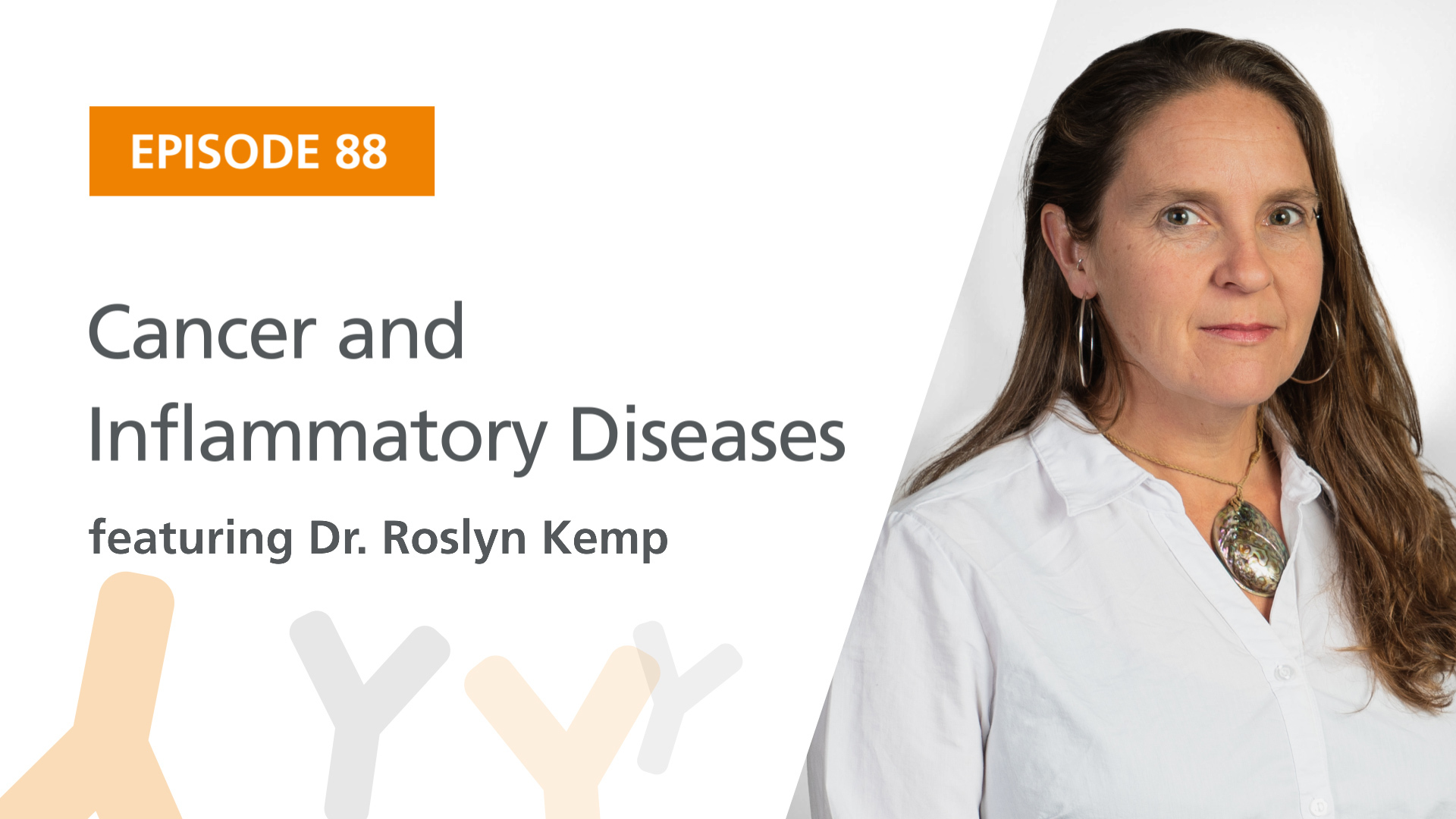
Guest:
Dr. Roslyn Kemp is a Professor of Immunology at the University of Otago. Her research focuses on T cells as mediators of anti-tumor immunity and inflammation. She discusses using organoids to model inflammatory bowel disease and collecting immune cell signatures in cancer. She also talks about writing a book to demystify science research and careers.
Featured Products and Resources:
- Abstract submission for IMMUNOLOGY2025
 opens on October 1. Register now!
opens on October 1. Register now! - Support the culture of human T cells and enhance your cell therapy development by using high-performance, cGMP-manufactured ImmunoCult
 -XF medium.
-XF medium.
The Immunology Science Round Up
Extending Responses after HIV Treatment – IL-10 and PD-1 blockade controlled viral rebound of SIV in rhesus macaques during analytical treatment interruption.
Autoreactive T Cells in Lupus – Neoself-antigen presentation by MHC-II plays a crucial role in the pathogenesis of systemic lupus erythematosus.
Bison Bile Salt Hydrolase – Researchers determined the molecular structure of a bile salt hydrolase from the bison microbiome.
How Gender-Affirming Hormone Therapy Affects Immunity – Testosterone in trans men alters a cross-regulation axis involving IFN-I and TNF.
Image courtesy of Dr. Roslyn Kemp


